At Beijing Normal–Hong Kong Baptist University (BNBU), every semester brings not only new courses, but also new energy that inspires curiosity, drives innovation, and deepens the connection between teaching and research. This autumn, three scholars from diverse disciplines have joined BNBU’s growing community and have been part of its Talent 100 Scheme.
From PKU to BNBU | It’s not debating. It’s about thinking outside the box.
It was only the first few weeks of class when Prof Qiu Lingyun asked his students to imagine running a grocery store. “Even a grocery store near our campus that uses only Excel as its management information system,” he said, “will find it indispensable for organisation.”
In that moment, a class on Management and Information Systems became more than just a discussion of technology. It became a conversation about how information shapes the way the world works.
As a newly appointed professor at BNBU, Prof Qiu brings more than 20 years of experience in teaching and research, focusing on information systems and digital innovation. Before joining BNBU, he taught at the Guanghua School of Management, Peking University, where he built a distinguished career exploring the intersection of technology, human behaviour, and business strategy.
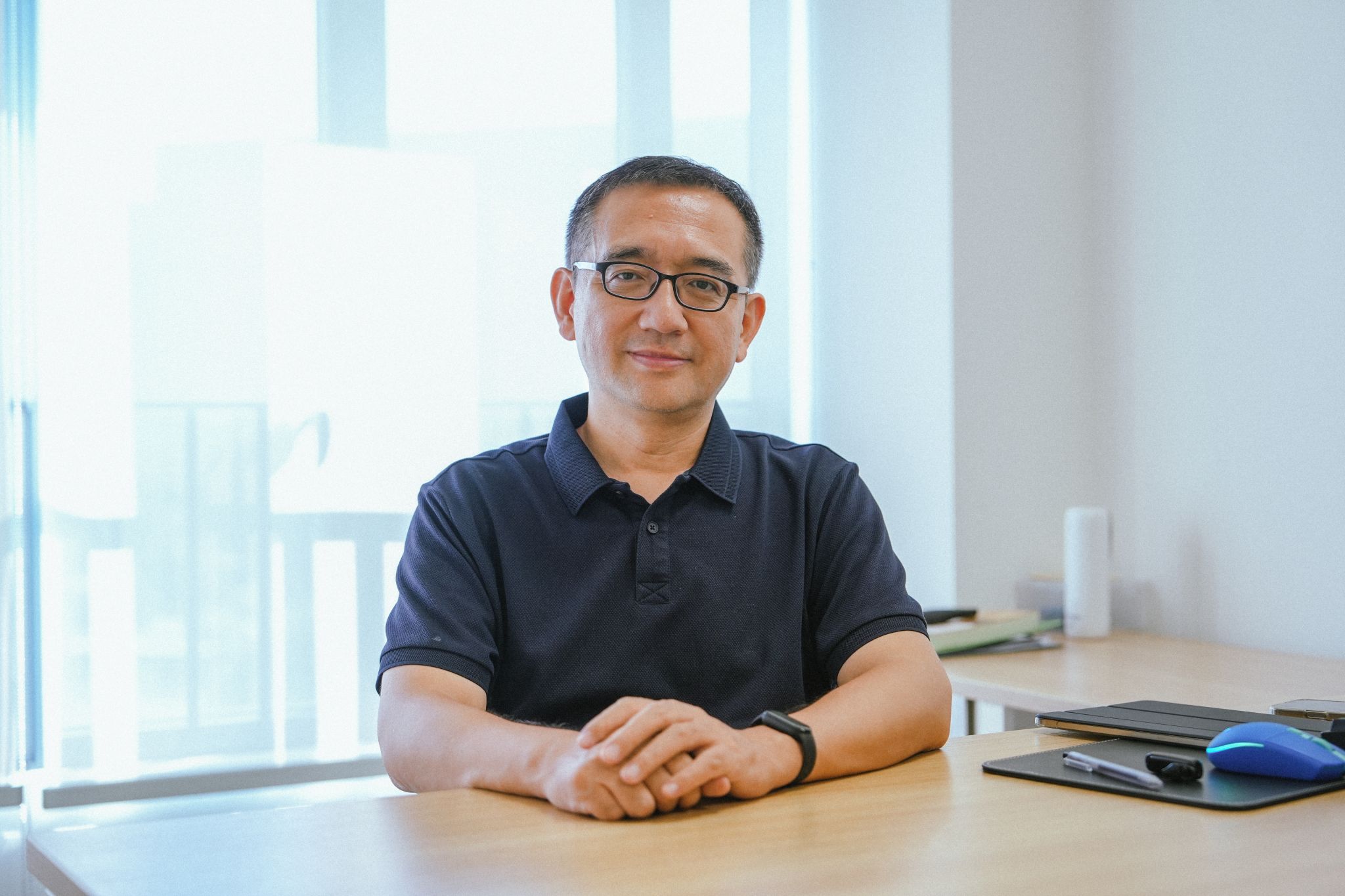
Prof Qiu Lingyun at BNBU
“I like to connect technology to everyday life, from small grocery shops to multinational enterprises,” he said. “It’s crucial for students to understand how information tech has shaped, and will shape, business and society.”
Besides, it’s not only the skills that Prof Qiu focuses on. “I like to challenge my students in class, but not in an offended way,” he continued. “I want them to think differently, to step into others’ shoes, to break away from old patterns. When they do that, they start seeing a bigger picture and more potential will be released.”
As one of his areas of expertise, the first course Prof Qiu teaches this semester is Management and Information Systems. While the name might sound technical, his teaching style makes complex theories accessible and relevant. He incorporates real-life case studies in his class, ranging from grocery stores to enterprises, to showcase the role technology plays in business management.
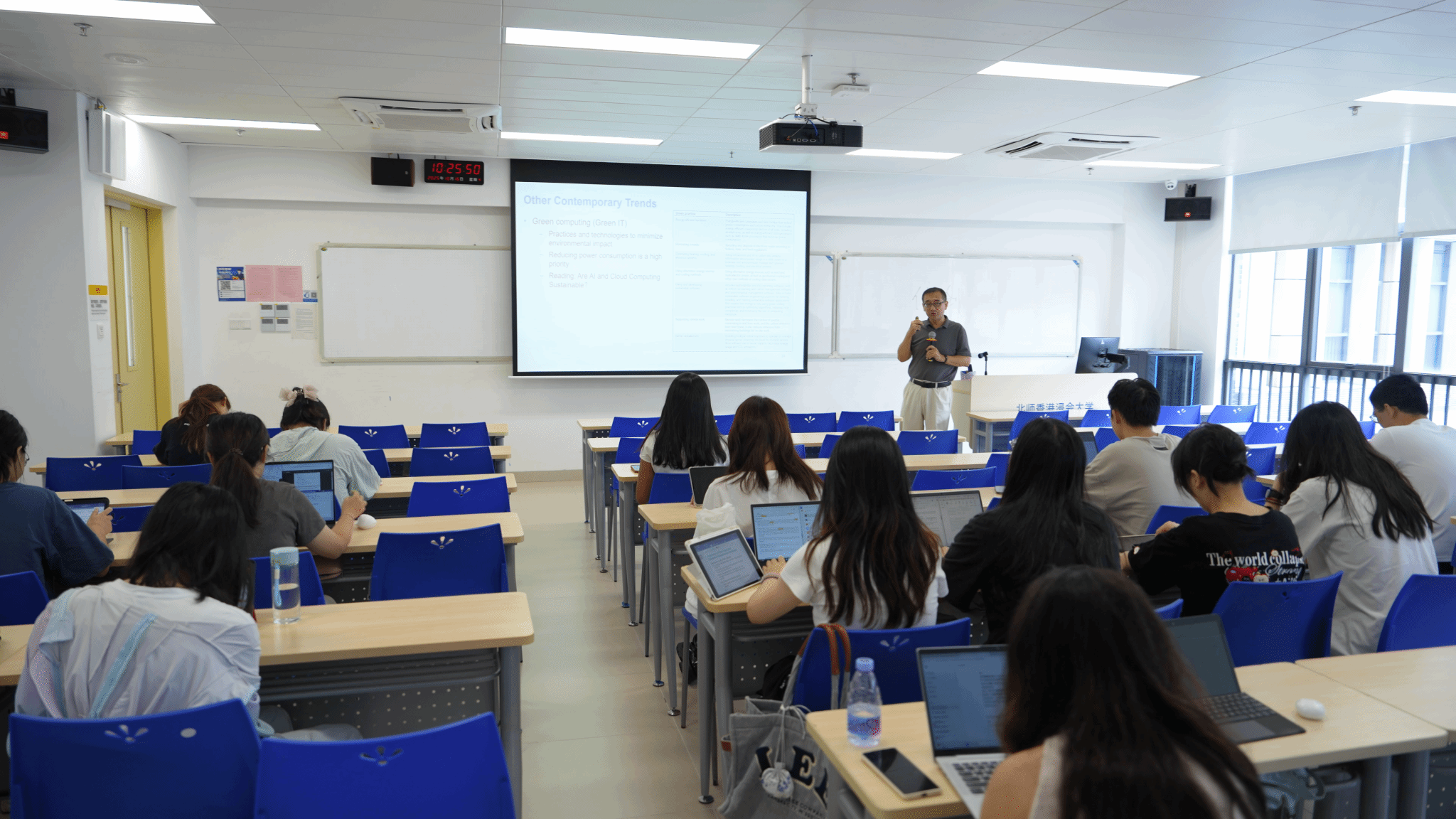
Prof Qiu in the classroom
He also plans to leverage his prior experience in facilitating industry-university-research collaborations, to offer more practical opportunities for undergraduates. “We’re in the Greater Bay Area, a region full of corporate resources and innovation,” he explained. “If we can integrate these resources into our teaching, it will greatly enhance our students’ practical understanding of how technology and management intersect.”
Prof Qiu’s first visit to BNBU dates back to 2023, when he was invited as a guest speaker. “I was impressed by the English-teaching environment and the liberal arts philosophy. The students here showed a genuine curiosity and a strong desire to learn,” he recalled.
Now, as he begins his first semester as a full-time faculty member, he looks forward to contributing to BNBU’s mission of nurturing well-rounded global talents.
“Be critical. Think actively. Lay a solid foundation for knowledge and language. Completing the tasks is important, but thinking is more important,” he said. “I believe the world needs thinkers who can understand technology and humanity, and that’s the kind of education we’re building here at BNBU.”
From NYC to GBA | I am here to help, for our future artists to shine.
“BNBU’s students are talented and passionate. My goal is to help them gain more visibility on the world stage. I want to serve as an ambassador for BNBU,” said Dr Hannah Kum. On her personal website, she introduces herself as a researcher, designer, and media artist. Recently, there’s been a new title: Associate Professor at BNBU.
As a researcher, her work has been featured at prestigious conferences and journals. As a media designer and artist, her creative works have been featured in over 25 international exhibitions worldwide, earning top design awards and research grants. She has also collaborated with global technology giants, including Google, Amazon, Samsung, and LG, leading projects that range from 3D printer interface design to VR tool development.
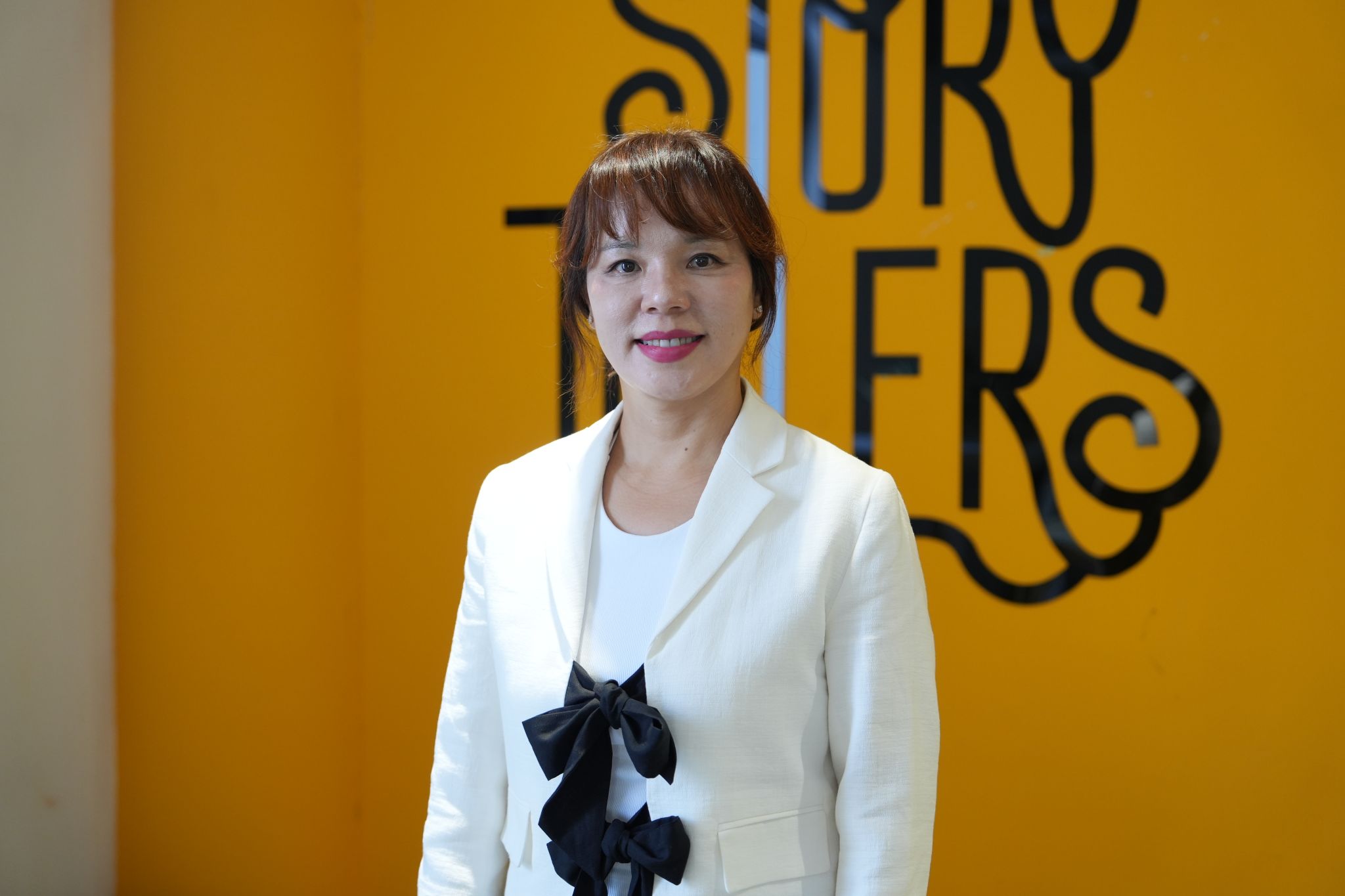
Dr Hannah Kum at BNBU
Intercultural and interdisciplinary, the environment in which Dr Kum grew up has unlocked her diverse possibilities. Studying sculpture in her undergraduate studies, media arts postgraduate at Goldsmiths, and interaction design in her doctoral studies, she values the sparks generated from the clashes of different perspectives, and understands the pressure and challenges that students will go through when stepping onto the world stage.
“I am bringing all my professionalism and research experience to grow our students, help them with their desire to whatever they have a future plan,” she added.
With over 15 years of experience, Dr Kum’s three roles are deeply intertwined and mutually support her in being a seasoned educator, as reflected in her years of teaching at top universities around the world and her regular evaluation by students as a top teacher for over ten years.
Having worked with both artists and organisations, Dr Kum has a clear perspective on collaboration with different stakeholders. “Sometimes companies and artists may think differently, but design brings them together. It’s about finding human meaning in technical innovation,” she concluded.
This semester, Dr Kum is teaching two courses, Digital Imaging and Design and Narrative and Interactivity in Media Art, which will help her students “understand the form, content, and user interaction in design” to be good designers, and master the skill of storytelling to be good storytellers to be better designers.
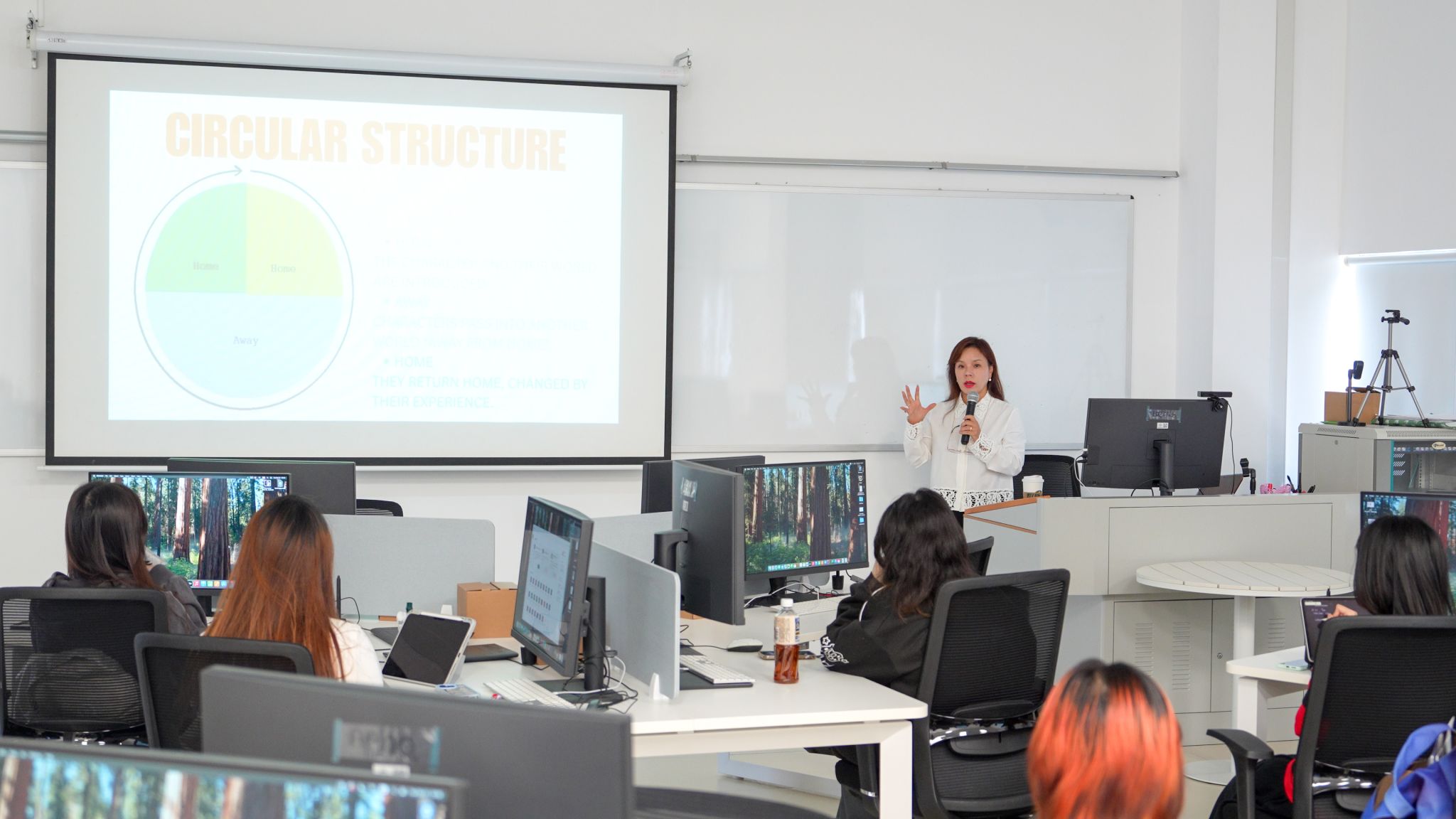
Dr Kum in the classroom
“Designers need to understand that we are creating the viewer's experience,” she emphasised, “so they need to know the logic of their stories very clearly.”
From New York to Zhuhai, though facing a huge transition, Dr Kum said life in Zhuhai just fits her expectations. “Everything I need is here. The environment just makes me relax and calm.”
When asked why she chose to join BNBU, Dr Kum’s answer is immediate and heartfelt. “It’s fast-growing, equipped with great facilities, and full of ambitious students who want to succeed in the global design world. The community here is like a big family, and everyone is so friendly and supportive,” she smiled.
From Johns Hopkins to BNBU | I want to grow with the community.
Dr Zhou Xinkai still remembers vividly the first time he watched a heart surgery. Under the cold, sterile light, the lead surgeon was delicately suturing a graft onto the coronary artery, opening a new pathway for blood to bypass the blockage. On the monitor, numbers flickered and pressure curves rose and fell. The steady beeping of the cardiac monitor intertwined with the soft hiss of the anaesthesia machine — the truest rhythm of life itself.
“That kind of shock is something reading and coursework alone could not give you,” he recalled. “At that moment, I realised data were no longer just numbers on a screen, but the living pulse of human life.”
After completing his postdoctoral training at Johns Hopkins, Dr Zhou joined BNBU, where he continues to explore the frontiers of “AI + medicine”. “There’s a sense of upward momentum here,” he said.
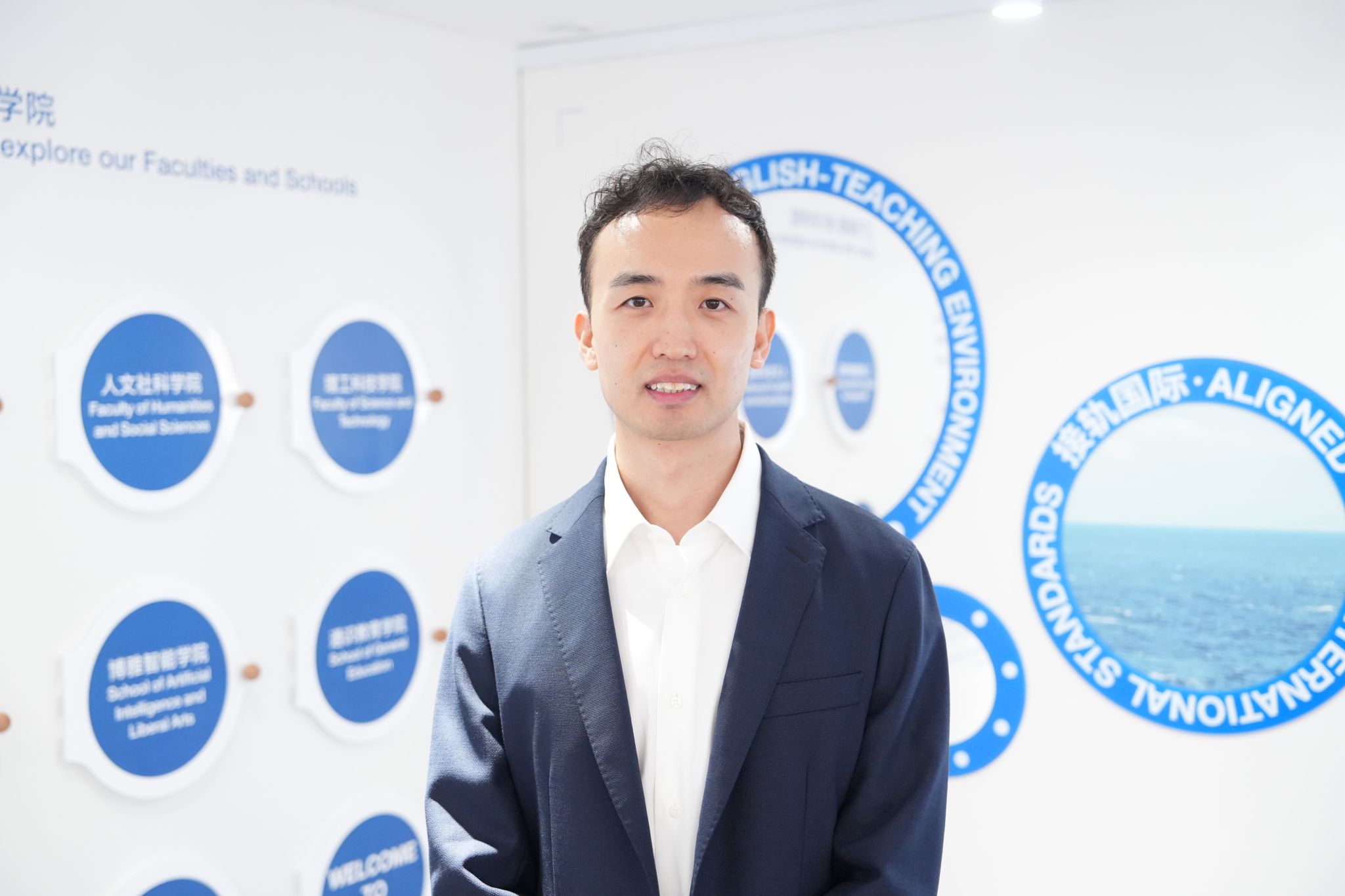
Dr Zhou Xinkai at BNBU
At this rapidly growing institution, Dr Zhou continues to deepen his research, focusing on the theory and methods for modelling continuous health-monitoring data — from intraoperative hemodynamic signals to continuous glucose-monitoring streams collected by wearable devices. His work is providing new data-driven insights and methodological tools to enhance surgical safety, optimise critical-care strategies, and personalise diabetes management.
At the same time, he is rethinking how to bring those scientific frontiers into his teaching. “I want to spark students’ natural curiosity,” he said, “and help them find what they truly love.”
In his Calculus course, students learn how humankind spent two millennia to precisely define the concept of a limit, and how the calculus invented four centuries ago now underpins breakthroughs in modern medicine.
“I was fortunate to learn from many excellent teachers,” he reflected. “They taught me that teaching isn’t about giving answers — it’s about igniting curiosity and revealing the full thinking process.”
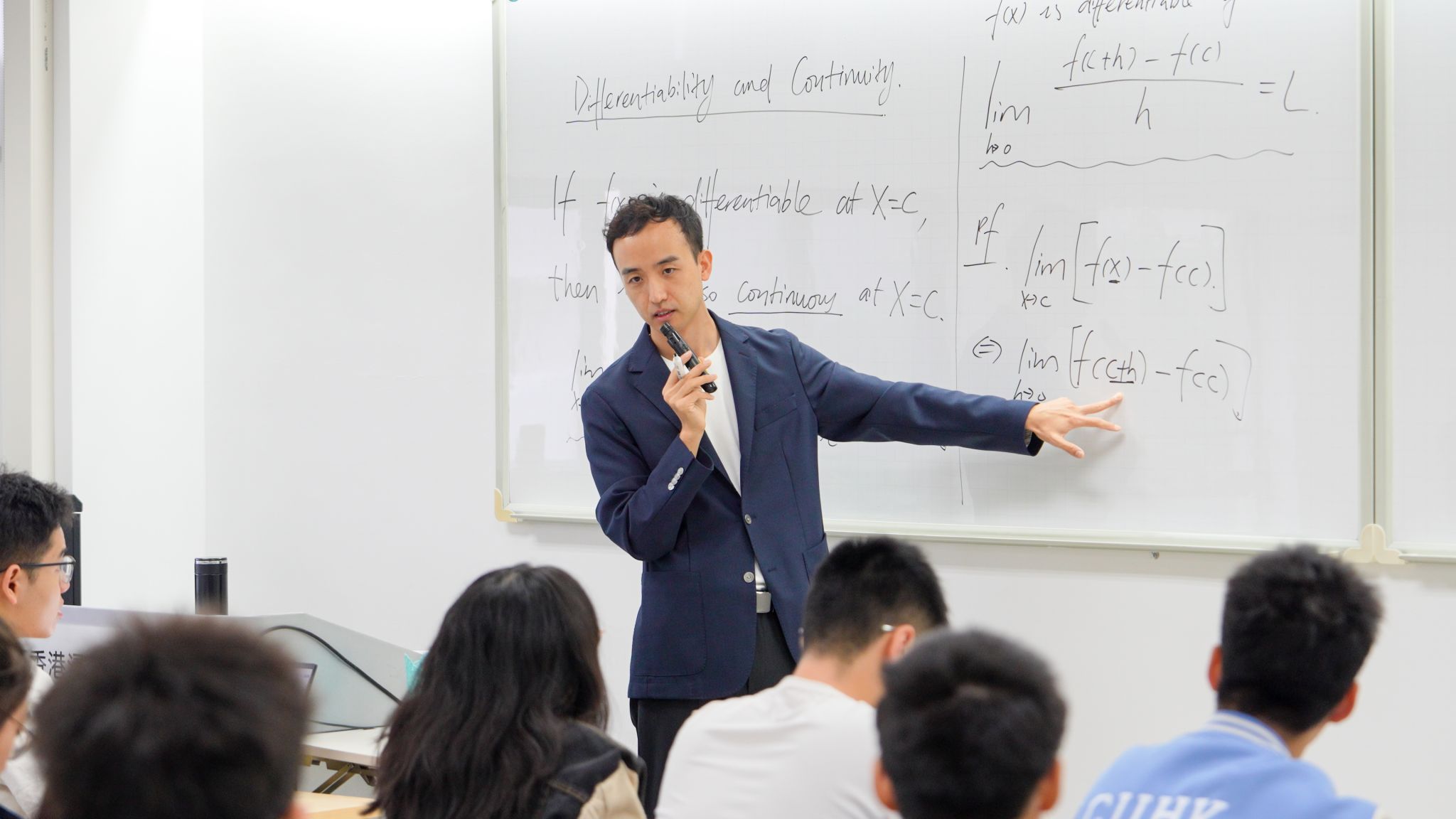
Dr Zhou in the classroom
Dr Zhou also encourages students to engage with real-world problems through research and internships, exploring what they truly care about. Meanwhile, he is building his own research team and welcomes master’s and doctoral students passionate about “AI+Medicine” to join him. “More than perfect grades,” he said, “I value curiosity, the courage to ask questions, and the willingness to explore.”
“Protecting Health, Saving Lives — Millions at a Time.” That motto of the Johns Hopkins Bloomberg School of Public Health has become a shared aspiration for Dr Zhou and his students.
“The rapid growth of continuous health-monitoring technologies is allowing us, for the first time, to observe how diseases emerge and evolve in real time,” he said. “By combining AI with statistical innovation, we can develop tools that can translate data into action, and turn the vision of ‘saving millions of lives’ into reality.
Looking ahead, Dr Zhou hopes to weave more of his research into the classroom, designing advanced biostatistics courses that reveal the discipline’s unique elegance, and help students discover where their own passions lie.
From MPRO
Reporter: Cecilia Yu, Koga Song
Photographer: Owen Li
Video produced by Owen Li, Hanna He, Koga Song, Cecilia Yu, Juan Rengifo

